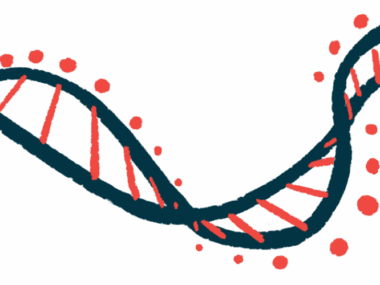FDA awards fast track designation to DM1 treatment DYNE-101
Clinical trial now testing therapy in myotonic dystrophy type 1 patients
Written by |

The U.S. Food and Drug Administration (FDA) has granted fast track designation to DYNE-101, a treatment candidate for myotonic dystrophy type 1 (DM1) — in which disease symptoms begin during adulthood — that’s now being tested in a clinical trial involving DM1 patients.
This status is awarded by the FDA to experimental therapies that have the potential to fill unmet medical needs in the treatment of serious conditions. The designation aims to speed the development of new therapies with certain incentives.
Here, DYNE-101 developer Dyne Therapeutics will get perks like more frequent meetings with the FDA, and the option to do a rolling application seeking the therapy’s approval. That means that Dyne could submit each part of the application whenever it’s ready, rather than having to wait for the entire application to be done before submitting, as is the usual procedure.
Therapies given this designation may also be eligible for FDA accelerated approval and priority review, which means the agency would take six months to review the application rather than the standard 10 months.
“This fast track designation comes on the heels of robust clinical data from our ACHIEVE trial, which demonstrated substantial functional benefit for patients across a range of clinical measures and a compelling effect on the key disease biomarker of splicing correction,” Doug Kerr, MD, PhD, chief medical officer of Dyne, said in a company press release.
Fast track designation follows positive clinical data from ACHIEVE
The ACHIEVE trial is ongoing. A Phase 1/2 clinical study (NCT05481879), ACHIEVE is still recruiting adults with DM1, ages 18 to 49, at eight sites in Europe and one in New Zealand. Testing centers in Europe are located in France, Germany Italy, the Netherlands, and the U.K.
DM1 is caused by mutations in the DMPK gene. These mutations lead to the production of an abnormal RNA — the intermediary molecule produced when genes are read to make proteins. The atypical RNA forms clumps in muscle cells, interfering with the normal genetic activity of muscle cells and ultimately driving the disease.
DYNE-101 contains oligonucleotides — small pieces of genetic material — that are designed to stick to the abnormal DMPK RNA and destroy it. By removing the toxic RNA, the therapy aims to address the root cause of DM1.
DM1 is a devastating disease with no approved therapies, and we are driven to deliver DYNE-101, a potentially transformative medicine, to patients as quickly as possible.
The clinical trial is testing DYNE-101 in people with DM1, one of two types of myotonic dystrophy — the most common form of muscular dystrophy in which symptoms onset occurs during adulthood.
Interim data from that study suggested that the therapy is working as intended, and leading to benefits in measures of muscle strength, balance, and fatigue among patients. To date, no serious treatment-related side effects have been reported.
“DM1 is a devastating disease with no approved therapies, and we are driven to deliver DYNE-101, a potentially transformative medicine, to patients as quickly as possible,” Kerr said.






